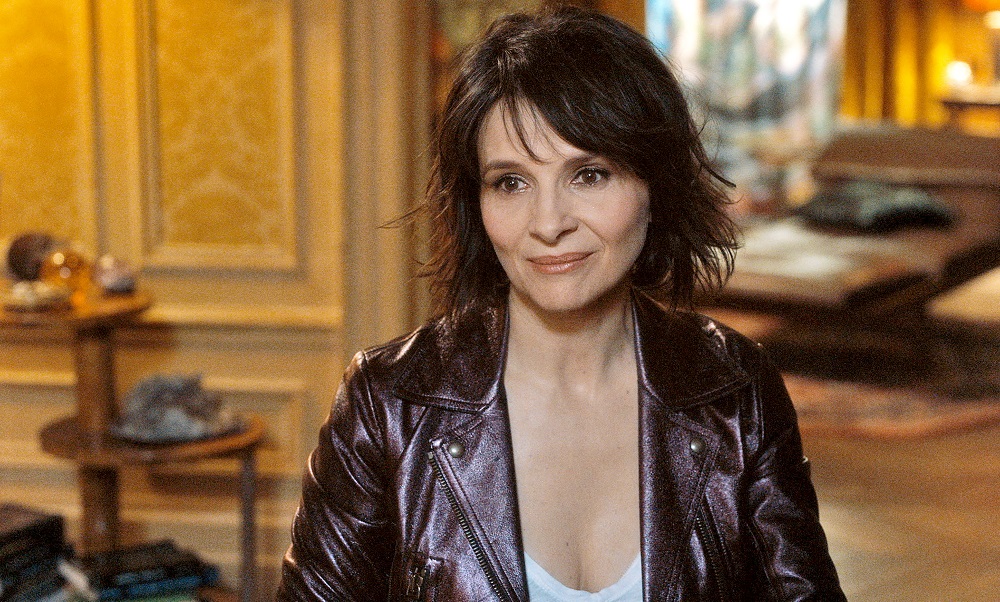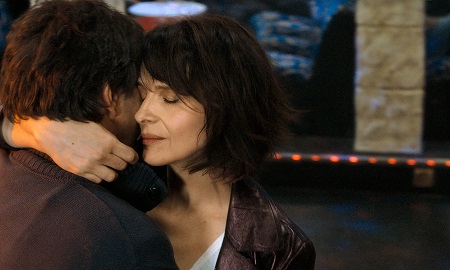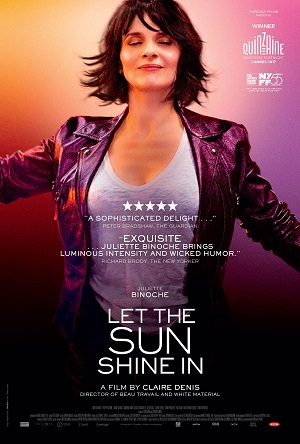
Let the Sunshine In (2018)
by Sara Michelle Fetters - June 29th, 2018 - Film Festivals Movie Reviews
a SIFF 2018 review
Emotionally Existential Sunshine an Intimately Human Character Study
Acclaimed French director Claire Denis’ Let the Sunshine In is a freewheeling, practically plotless journey through midlife friendship, love and romance. For the woman behind timeless stunners like White Material, Beau Travail, Nenette and Boni and Chocolat, this is existential stream-of-consciousness filmmaking at its zenith. It is a travelogue of personal catastrophes and quixotic longing, all of it centered upon actress Juliette Binoche giving one of the greatest performances of her Oscar-winning career.
Not to say this will be everyone’s cup of French cineaste tea. Binoche plays Isabelle, a talented Parisian artist who is currently in the throngs of a passionate affair with a married banker (Xavier Beauvois). Divorced with a young daughter, Isabelle is unwilling to give up on love. At the same time, she’s becoming increasingly frustrated with just how hard it is to find it. More, she’s not about to change who she is and what she wants from either her romantic partner or her career just to placate a man. Not that this has ever stopped her from seeing a number of different suitors, including a popular actor (Nicolas Duvauchelle) who has hired her to help do the production design for his latest theatrical endeavor and even a fellow artist (Alex Descas) her friends think might be taking advantage of her. But no one seems to fit the bill, and as things progress Isabelle is starting to wonder if she’s going to spend the last three or four decades of her life alone.
As funny as the film can be, a romantic comedy this is not. As emotionally cutthroat as many of the vignettes become, neither is this some sort of straightforward drama about an intelligent woman working her way through a midlife crisis. Instead, Denis has crafted something altogether unique. Working with co-writer Christine Angot, the director has decided to present a forty-something woman’s life as she sees it. Naked. Raw. Unrefined. Fragmented. Determined. Complex. Mysterious. Sensual. Frustrating. Joyous. Banal. Exciting. These are just a handful of the words that came to mind as I sat in the theatre taking it all in, Denis bringing the type of introspective precision to Isabelle’s current travails that reminded me of the perceptively hard-edged musings of author Virginia Woolf.
It’s a lot to have to sift through, and even if it appears not much is happening the reality couldn’t be more different. Isabelle is a woman navigating through uncertainty. She makes mistakes, doesn’t heed her own advice, listens to ideas from others she really probably shouldn’t and dives headfirst into romance when she arguably should be taking more time to better assess who it is she’s currently locking hands with. At the same time, Isabelle is fiercely independent. She takes charge of situations with confident authority. She is willing to do what it takes to satisfy her own carnal desires, not appearing to always care what others think of her when she does.
In short, she is a real person, a woman walking along the streets of her life in high-heeled boots that sometimes hurt her feet even though they can also make her feel invincible in her proud femininity at the exact same time. Isabelle lives her life, that’s it, nothing more than that, and at times it is almost as if Denis, Angot and cinematographer Agnès Godard (Sister) just chose a random woman on the street to follow around for a few months in order to make some sort of cinéma vérité documentary for their own amusement and not a lot else.
Yet there is visceral power to be found in this story if one chooses to put forth the effort to experience it. Denis offers up pain and longing in a manner that’s uncomforting in its exactitude. There is a real sense of what it is like to feel so desperately alone even when surrounded by people all claiming to be your friends and loved ones. Isabelle’s despair at the prospect that she will never find romantic happiness is terrifyingly palpable, and there were moments my heart came close to splitting apart at the seams as I sat in the theatre experiencing all of this angst and ennui right there with her.
Binoche is stunning. Watching her this past decade or so, doing transformative work for the likes of Olivier Assayas (Clouds of Sils Maria, Summer Hours), Abbas Kiarostami (Certified Copy), Cédric Klapisch (Paris) and Michael Haneke (Caché), turning in superlative supporting turns in films like Polina, Dan in Real Life and Cosmopolis, all of it has been a brilliant reminder that her Academy Award win for 1996’s The English Patient was hardly unwarranted. As Isabelle, Binoche showcases a fearlessness that’s haunting in its breathtaking specificity. There are no minced words; no timidly hesitant footsteps that might have made her performance feel inauthentic or facile. Instead, the actress becomes Isabelle, completely and without hesitation, her performance to achieving a level of meditative expressiveness that caught me by surprise.
It doesn’t always work, and the disconnected randomness of the narrative does make it difficult to fully engage with anything that is happening as fully or as completely as I would have otherwise liked. It can also feel oppressively downbeat for prolonged periods of time, Isabelle’s journey showcasing a mournful, almost tragically doomed melancholic edge that’s not exactly easy to embrace.
But the film’s honesty is refreshing, and it’s refusal to sugarcoat anything that is happening to Isabelle is equally so. It all builds to a sudden, somewhat shocking elongated scene between Binoche and a cagey, craftily intuitive Gérard Depardieu, the French icon cavalierly reveling in his masculine bravado in a way that’s seductively repellant. It’s a clever turn of events, Denis spinning Isabelle’s story onto its head while at the same time bringing the themes and ideas that have powered her search from the beginning to be seen in a whole new light. If Let the Sunshine In isn’t the director’s most vital work, that doesn’t make it any less artistically dazzling, the hope for a better tomorrow overflowing in thoughtful companionship and unfettered love a universal longing intelligent viewers of all types should have no problem relating to.
– Review reprinted courtesy of the SGN in Seattle
Film Rating: 3½ (out of 4)








